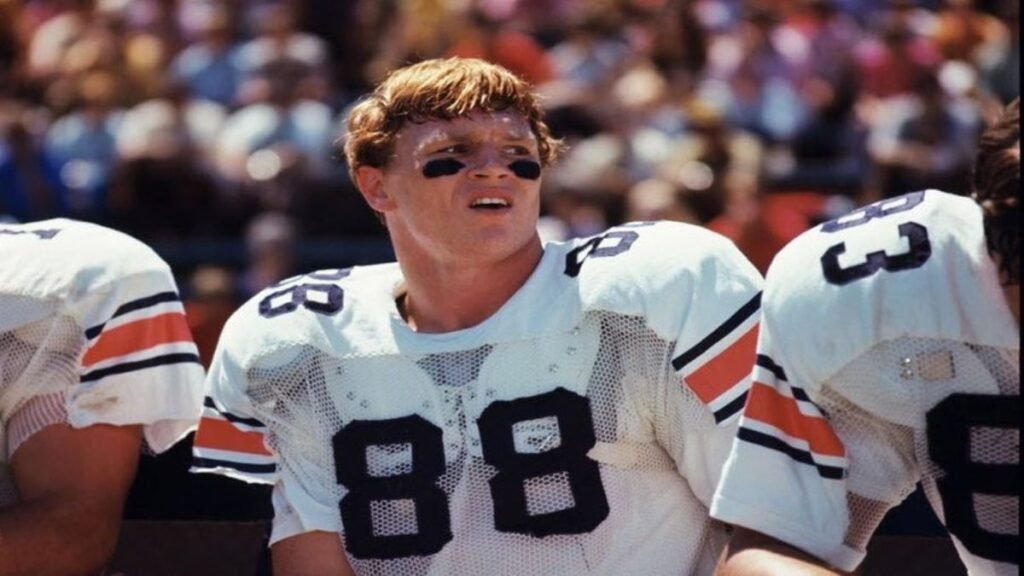Legendary Auburn wide receiver, Terry Beasley, passed away at the age of 73 in his Moody home, leaving a profound impact on the Auburn football community.
Recognized for his exceptional contributions in the late ’60s, Beasley etched his name in the annals of Auburn football history by setting records and showcasing extraordinary talent as a wide receiver.
His legacy extends beyond statistics, encompassing a spirit that resonates with fans and players alike.
As we reflect on the life of this iconic figure, we celebrate the indelible mark Terry Beasley left on the sport and the hearts of those who admired his prowess on the field.
Also Read: Vivienne Marie Obituary And Death: How Did Painter Died?
Terry Beasley Health Before Death
Terry Beasley faced a protracted and challenging journey with health issues that ultimately led to his demise at the age of 73 on January 31, 2024.
Beasley’s health was marred by the enduring consequences of concussions, a struggle that spanned over a decade before his passing.
The toll of Beasley’s athletic career manifested in the form of chronic traumatic encephalopathy (CTE), a neurodegenerative condition commonly observed in retired professional football players.
CTE is linked to repeated head injuries, particularly concussions, sustained during a player’s career.
Unfortunately, Beasley’s battle with health problems was indicative of the broader issue faced by many athletes who grapple with the aftermath of the physical toll exacted by their sport.
Chronic traumatic encephalopathy is a progressive condition that affects cognitive function and can lead to a range of debilitating symptoms, including memory loss, mood swings, and impaired judgment.

Beasley’s struggle with CTE exemplifies the longstanding concern regarding the long-term impact of head injuries in contact sports, prompting increased awareness and research in recent years.
In the years leading up to his death, Beasley’s health was undoubtedly compromised, reflecting the complex challenges faced by former athletes who grapple with the consequences of their playing days.
The toll on his well-being serves as a poignant reminder of the importance of addressing and mitigating the risks associated with head injuries in sports.
Terry Beasley’s passing underscores the need for continued research, education, and preventive measures to safeguard the health of athletes long after their playing careers conclude.
The awareness generated by cases like Beasley’s contributes to a broader dialogue surrounding player safety in sports and prompts a reevaluation of practices and policies to ensure the well-being of athletes remains a top priority.
Did Terry Beasley Have Any Illness?
Terry Beasley’s life was marked by a tumultuous battle with health issues, primarily stemming from the consequences of repeated concussions during his football career.
While he did indeed have a history of health problems related to head injuries, the circumstances surrounding his sudden demise have raised questions and speculation.
One significant aspect of Beasley’s health struggles was his history of concussions, which is known to contribute to long-term neurological issues.
Chronic traumatic encephalopathy (CTE), a condition associated with repetitive head injuries, had cast a shadow over Beasley’s post-football life.
The debilitating effects of CTE include cognitive decline, mood disorders, and other neurological symptoms, presenting a formidable challenge for those afflicted.
The circumstances surrounding Terry Beasley’s death have been clouded with uncertainty, as there is a lack of official confirmation regarding the cause.

However, rumors suggesting a possible link to suicide have surfaced, adding a layer of complexity to his health narrative.
If indeed his passing is attributed to suicide, it would raise concerns about the mental health struggles Beasley may have been experiencing.
Mental health issues, often exacerbated by factors such as chronic pain and neurological conditions, are prevalent among former athletes facing the aftermath of their playing careers.
The potential link to suicide underscores the importance of recognizing and addressing the mental health challenges that individuals like Terry Beasley may encounter.
It also highlights the need for increased awareness, support, and destigmatization of mental health issues within the context of professional sports.
While awaiting official confirmation, Terry Beasley’s story serves as a poignant reminder of the multifaceted nature of health challenges faced by athletes, encompassing both physical and mental well-being.
His legacy prompts reflection on the broader issue of athlete health, emphasizing the importance of comprehensive care to address the complex interplay of physical and mental health in the aftermath of a sports career.
Also Read: Ohio Mac Trace Obituary And Death: Family Mourns The Loss

